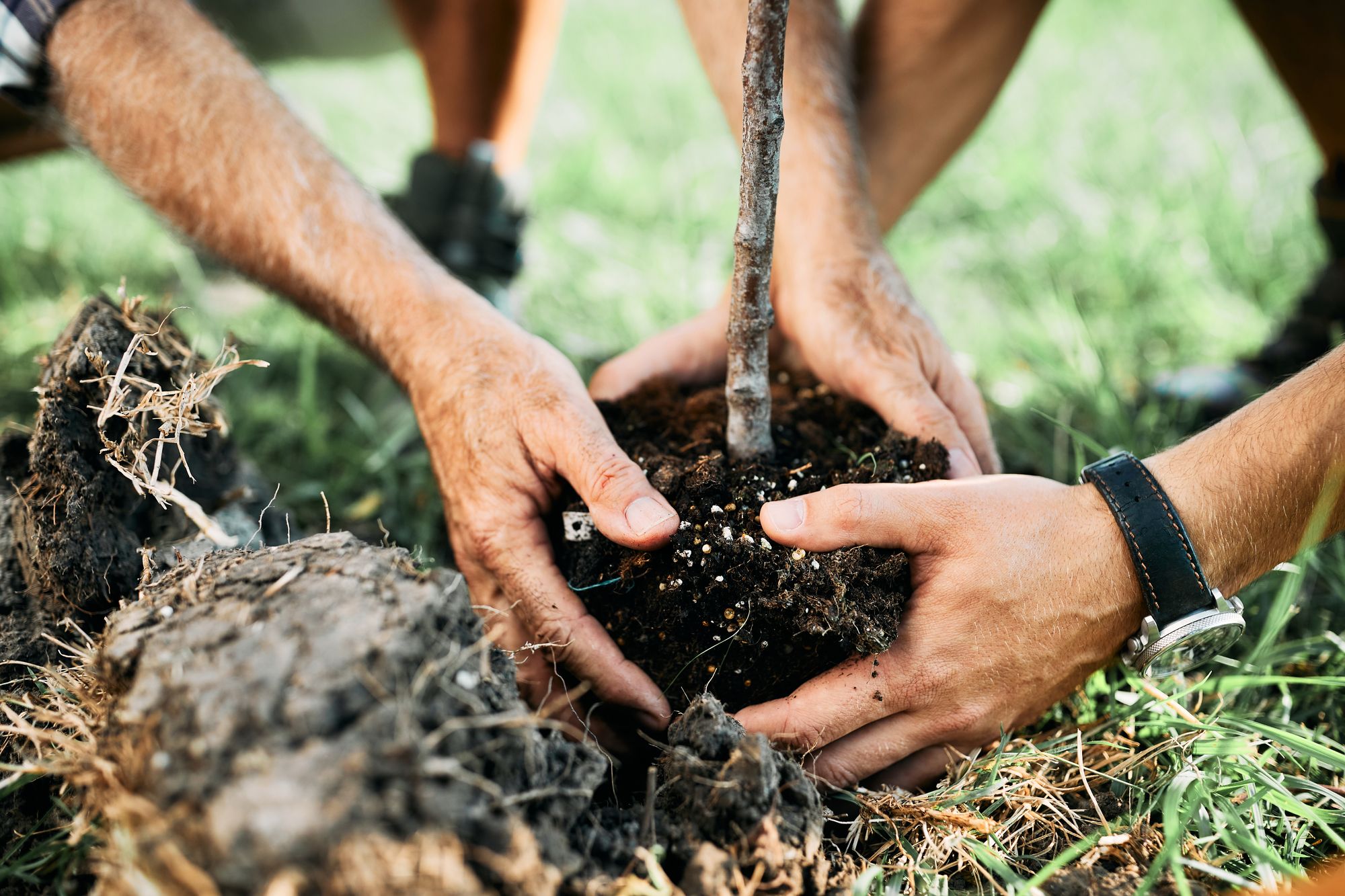Even before the project got underway, Trees for Woolwich expected there’d be some resistance to planting trees along the township’s rural roadways. Some farmers were wary of trees shading out their crops, for instance.
When planting got underway this spring, the township began fielding calls from some property owners. Now, Woolwich is looking to tweak the process ahead of next fall’s planting season.
Complicating matters is the fact that some farmers have been planting crops on township land, areas now being staked out for trees. That’s another “hiccup” in the process, says Jared Puppe, Woolwich’s director of infrastructure services.
Poor communication was definitely a factor, he told councillors at a meeting last week, reiterating the point in a subsequent interview.
“There have been some challenges as far as the communication times go. There were some logistical issues with the trees being delivered and notifications getting out to property owners. Therein lies some of the challenge, so we’re looking to ensure to correct that for the fall planting season,” he said.
The township is in fact meeting this week with some of the parties involved to improve the lines of communication.
Coun. Eric Schwindt, whose Ward 2 includes some of the areas where planting got underway this spring, says he heard from landowners who had been caught off-guard by the work being done. Some also raised the concerns that were predicted from the offset.
“I would say there’s clear consensus of people who had a lot of concern about communication,” he said. The other, I guess, would be that we tailor plantings for the localized situation on that farm property.
“I think that would go a long way to making the program more successful, because our goal needs to be not just planting the trees, but having those trees survive and prosper and beautiful in 30 years,” added Schwindt, pointing to the value of cooperation from landowners.
Better communication would also address the areas of encroachment, along with recognizing that concerns will vary from owner to owner.
“Most people I’ve talked to are supportive of the program, we just want to make sure we spend a bit more time planning before digging,” said Schwindt of the summertime strategy.
Along with explaining the benefits of an enhanced tree line – the likes of protecting against wind damage to fields, helping to crowd out invasive species and creating healthy native habitat – talking with farmers will help settle the property line issues.
In preparing for the Trees for Woolwich plantings, the township set out stake lines, Puppe said, noting that some farmers have traditionally cropped onto municipal property, especially in the absence of natural demarcations such as ditches.
“A lot of farmers encroach beyond the private property with some of their cropping, and what we’ve done in this exercises, we identified where that property line generally is – there’s some discrepancy there,” he explained. “It’s not uncommon, I would say, in some of the rural gravel road areas to have encroachments by crop farming.”
Once the trees started going in, some of those farmers were taken aback.
“Sometimes they’re not planted exactly where they may have liked them to be. In other cases, some of the adjacent landowners were disappointed at some of the locations.”
Schwindt said some of the trees that have already planted did get moved under the auspices of the township.
“I actually met with a resident last week, and after talking to the township roads crew, we just moved where they’re planted by about three feet. I think that based on that, that farmers are thrilled to have those trees now.”
Ahead of the next wave of plantings next fall, the township will be reaching out to each property owner along roads scheduled to get new trees, as well as meeting with Trees for Woolwich volunteers so that everybody is on the same page, said Puppe.
The latest Trees for Woolwich project calls for the planting of some 21,500 trees along 335 kilometres of township and regional roads in Woolwich by 2032. The goal is to replace the mature trees now in decline.


